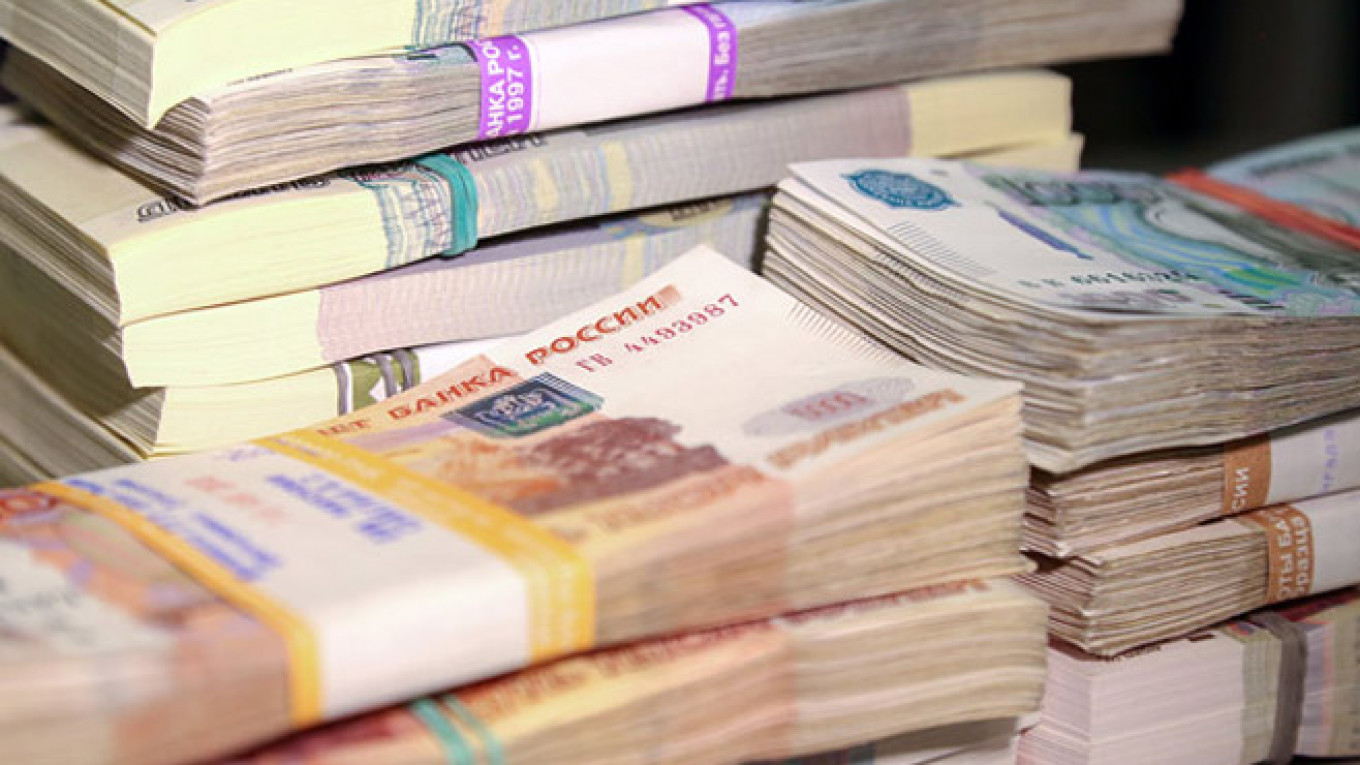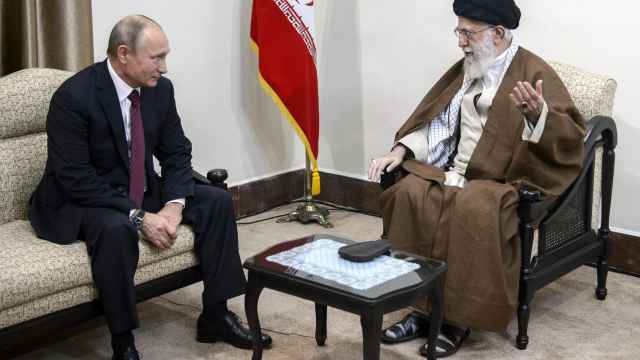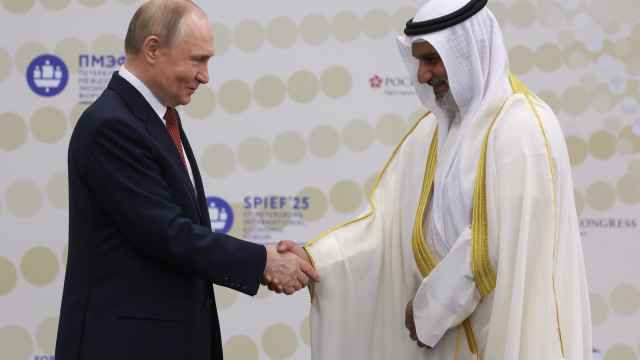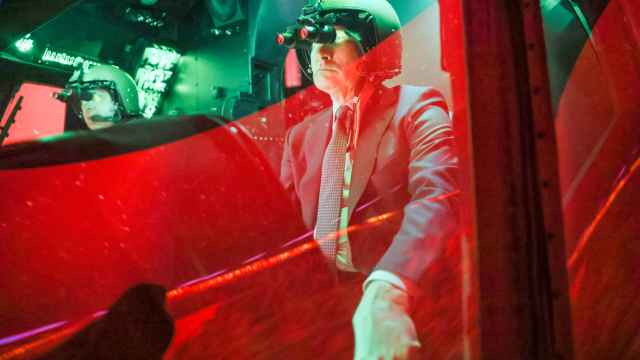President Vladimir Putin has signed into law a bill on paying military pensions to the families of soldiers who have gone missing in action, and a high-ranking lawmaker told Russian media that the legislature is seeking to extend the benefits to "volunteers" in eastern Ukraine.
The bill of amendments, signed by Putin, expands the list of possible beneficiaries to include the families of those who are missing in action or have been killed during reservist training, according to the text of the document published on the Kremlin website Wednesday.
The law excludes any Russian soldiers who are known to have perished in Ukraine, its author and head of the Federation Council's Defense and Security Committee Viktor Ozerov told Gazeta.ru. Those soldiers could include paratroopers who were buried in the Pskov region recently.
"Our paratroopers from Pskov and any others were in southeastern Ukraine voluntarily," Ozerov was quoted as saying.
But he said Federation Council chairwoman Valentina Matviyenko has asked lawmakers to submit proposals for a new bill that would ensure that the "families of killed volunteers, and those who were injured, would also receive compensation from the state," Gazeta.ru reported.
The lawmaker did not specify how the bill would distinguish between Russian volunteers fighting alongside separatists in eastern Ukraine and Russian volunteers fighting alongside militants of the Islamic State, which Moscow considers a terrorist organization.
Those militants include the Islamic State's notorious red-bearded commander Omar al-Shishani, known as "the Chechen," or another Russian fighter, Alidibir Asludinov, who was killed this month in the North Caucasus after reportedly returning from Syria a professional bomb-maker.
Russia backed a U.S.-proposed resolution at the UN Security Council last month that requires countries to "prevent and suppress" the recruitment and travel of foreign "terrorist fighters" to militant groups such as the Islamic State.
But while the resolution is legally binding, the UN has no accepted definition of "terrorism," leaving the term open to interpretation by different countries. The Ukrainian government refers to separatists in the east as "terrorists."
Another difficulty for Ozerov and other supporters of paying compensation to Russian "volunteers" in Ukraine would be maintaining Moscow's denials of sending fighters to eastern Ukraine, if paying military benefits to those men or their families is enshrined by law.
Ozerov told Gazeta.ru that lawmakers plan to hold a roundtable during the upcoming spring legislative session to "listen to various viewpoints and try to find options for a solution so that out volunteer boys also aren't forgotten by the state," Gazeta.ru reported.
The law signed by Putin, however, appears to lay the groundwork for paying military pensions to the families of missing soldiers, as long as those families keep silent that the soldiers may have gone missing in action in Ukraine.
This would be similar to the leverage of military pensions that human rights activists say appears to have been applied to relatives of soldiers who have been killed.
Following the deaths of paratroopers from Pskov, their families have mostly declined to comment on the circumstances of their loved ones' deaths — a silence that could indicate fears of losing military pensions in the event of disclosure.
The military, meanwhile, has only issued vague claims that the men were killed during exercises in Russia.
Pensions paid to the families of dead soldiers currently stand at about 14,000 rubles ($350) a month. But families of soldiers who have gone missing in action have for decades been denied military pay — a practice that dates back to the Soviet era.
The new law was intended to ensure that families of servicemen who went missing in action during the Soviet war in Afghanistan or later in Chechnya would receive military pay, Ozerov told Gazeta.ru.
Contact the author at [email protected]
A Message from The Moscow Times:
Dear readers,
We are facing unprecedented challenges. Russia's Prosecutor General's Office has designated The Moscow Times as an "undesirable" organization, criminalizing our work and putting our staff at risk of prosecution. This follows our earlier unjust labeling as a "foreign agent."
These actions are direct attempts to silence independent journalism in Russia. The authorities claim our work "discredits the decisions of the Russian leadership." We see things differently: we strive to provide accurate, unbiased reporting on Russia.
We, the journalists of The Moscow Times, refuse to be silenced. But to continue our work, we need your help.
Your support, no matter how small, makes a world of difference. If you can, please support us monthly starting from just $2. It's quick to set up, and every contribution makes a significant impact.
By supporting The Moscow Times, you're defending open, independent journalism in the face of repression. Thank you for standing with us.
Remind me later.






